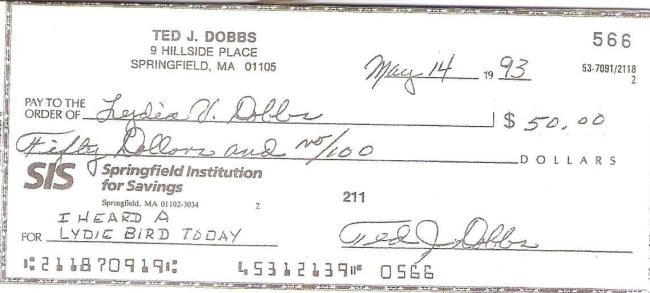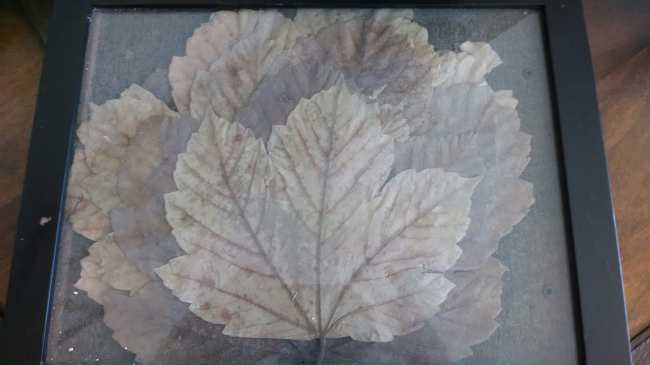In Memory of George W. Morgan June 23, 1930― June 29, 2013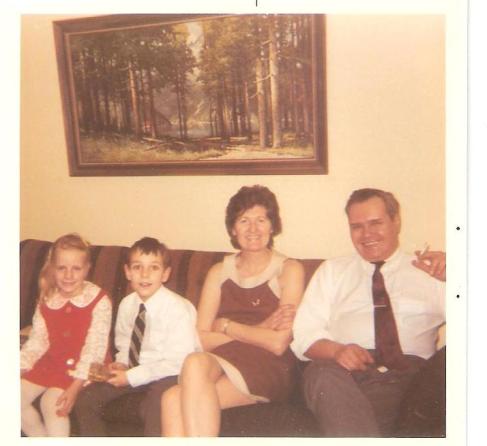
“Uncle” George became the stepfather who played the banana name game, recited ooey gooyey and fuzzy wuzzy rhymes , Robert Louis Stevenson’s poem “My Shadow”, and read “The Goops” to us– how they licked their fingers and their knives and led such disgusting lives. He enjoyed telling tales of his own mischievous childhood too, especially about the time he served his pet goat’s poop pebbles as hors d’oeuvres at his parent’s cocktail party.
George was the son-in-law who played dominoes with OomMama until the wee hours of the morning and insisted she join him and Mom on their weekly dinners out. He was the one who bought us Sea Monkeys when we saw the packages displayed at a toy store counter. We could barely wait to put them in water and watch our sea monkey family spontaneously appear. Weeks later, all we had were white specs that looked nothing like the pictures of the sea creatures on the package. Not long after that we came home from school one day to find an aquarium filled with exotic fish. There were kissing gouramis, neons, a purple and red Japanese fighting fish and a speckled newt. A practiced escape artist, the newt could be found out exploring the yellow shag carpet in the mornings.
I recall one Sunday evening, George had me sing my favorite song to him, “Rain drops keep falling on my head.” I only knew one verse, but he didn’t seem to mind. He smiled and kept saying “One more time!” I happily obliged until Mom interjected. “That’s enough!” And sent me to bed.
One time, my Stepfather had us memorize the meaning and spelling of E L E E M O S Y N A R Y so we could trip up our teachers. (Just a random multisyllabic word that means charitable.) He was the one who took us to the pet store and bought us our first golden retriever, Brutus.
One night, my brother, Greg, and mother ran into my bedroom. My mother slammed the door and locked it, pushing Greg towards my bed. My stepfather was on the other side of the door threatening to break it down. He threw himself against it and the wood cracked. My mother had a gun in her hand and was trying to undo the safety latch. My brother tells me we walked right past my stepfather who stood aside, sweating and breathing heavily. I don’t remember that part. I do remember the hammer sticking out of the TV, the huge zig zag cracks in the picture window, and the overturned aquarium. And how I gave my mother a hard time because I didn’t want to be seen in public wearing PJs. We stayed in a Howard Johnson’s for what remained of that night. George was gone when we returned the following day. Mom said he was in the hospital and would be back in a couple weeks. My bedroom door never closed completely after that.
At one point, my stepfather was in the pizza oven and pizza supply business for bars. I remember making the pizzas in our kitchen on weekends. We’d lay out a half dozen frozen crusts on the green Formica table and dress them with a giant metal spoon of red sauce spreading it out in circles. Then we’d sprinkle 3 handfuls of mozzarella cheese and place a dozen pepperoni slices—nibbling on cheese and pepperoni as we went. Perhaps that was the catalyst for my stepfather and mother to go into the restaurant bar business in a nearby town. Mom tells a story that he was drinking too much one night and she told him he had a drinking problem. The argument escalated and he smacked her. I barely recall the restaurant. But I do have a picture of me there, sitting in the red booth on my 5th birthday, spoon in hand poised to dive into a great big, hot fudge sundae.

A couple years later, George talked my mother into selling her house in Longmeadow, MA and buying the Elms Hotel, restaurant and bar in Charlestown N. H. There were only 25rooms in the hotel. My parents shared a suite with me and my little sister, Helen. Next door was my brother’s room. In his freshman year at Deerfield Academy, he wasn’t home much. Next to Greg’s room was our communal bathroom. We lived in the hotel full time.
One night I woke up to violent arguing. I remember sitting up, holding my pillow to my chest―rocking . I was amazed that my sister in the crib next to me didn’t wake, even with the huge crash, glass shattering, and door slamming. Minutes that felt like hours went by until I had the courage to tiptoe over to the door and peek around it. Mom was sitting up in bed. When she saw me, she laughed. “That idiot thought he pulled the phone out—but it’s still connected. I’ll fix him and call the cops. What are you doing standing there? It’s just a broken lamp, go back to bed. “
Once after a stint at rehab, my stepfather apologized to me. My mother walked in and interrupted, “You don’t need to apologize to her.”
In the fifth grade, I wrote an essay about how lucky I was to have 2 fathers at the Thanksgiving table – my dad who came to visit from Massachusetts and my stepfather, George.
In sixth grade, my parents bought another hotel in Jaffrey, NH and we moved into it. The Monadnock Lodge was a 3 story rustic resort surrounded by 27 acres of woods. There were 2 dining rooms, 2 bars and a huge stone fireplace that reached all the way up to the lofted wood ceilings. People would come from New York and Boston to get away and enjoy the entertainment. Alongside the long and winding driveway was a duck pond. My father came up from Massachusetts and built a barn for my horse nacky (named after the Lodge) and the seven ducks that I hand fed. I had a huge crush on my teacher, Mr. Carlton, that year and enjoyed the attention of several “boyfriends” in my class (Tommy, the jock, Dennis, the nerd, Ronny, the all around great guy, and my two best friends, Jennifer and Rhonda.) It was Mr. Carlton who got me started writing poetry.
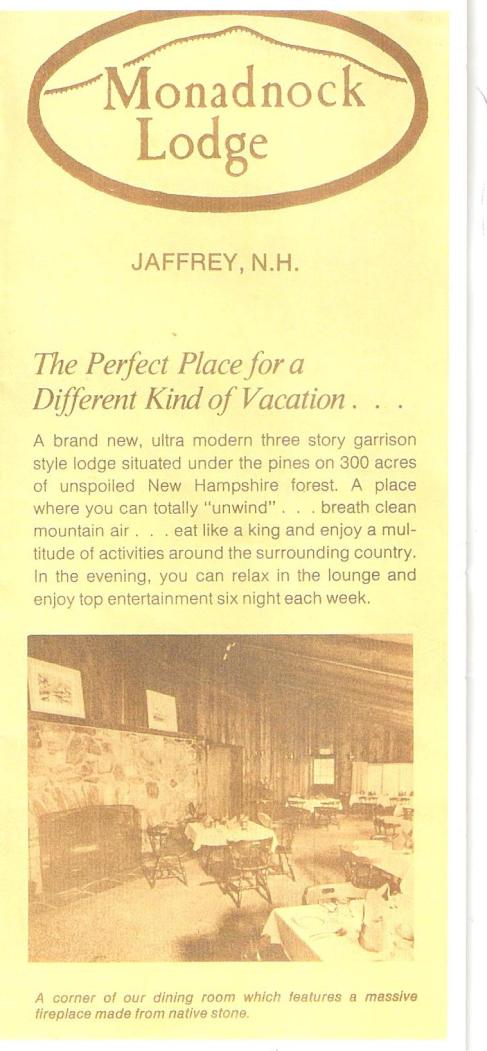
Andrea was the head waitress at the Lodge. Her shiny auburn hair was always in a sophisticated French twist. She wore white nurse uniforms that fit her petite frame perfectly and served our meals efficiently in silence. Once when a wasp appeared on the window next to me, she took a white cloth napkin and calmly pressed it against the wasp. Then she dropped the napkin with a shocked look and put her manicured red fingernail to her mouth. Mom hated her. Presumably she was having an affair with my stepfather. After Andrea came Aggie, one of the cooks. She was a Polish tomboy with short course, bleached hair and a squashed nose. She wore jeans and T-shirts all the time and drove a van with groovy painting on the outside and velvet seats and an eight-track player on the inside. Mom referred to her as “that Polish peasant”.
Since the Lodge was 7 miles from town, Mom would always drop me off and pick me up from school. One December day, two days after my twelfth birthday, I stood waiting just inside the door until the late bus and the last car had left the parking lot. The janitor told me I had to leave and jerked the door closed behind me. I started to walk home not sure that I could make it before dark. I walked fast out of town beyond the traffic light and stores, beyond where the sidewalks run out.
What the heck, was Mom was coming to pick me up or what?! At some point I remembered that today was the day she was picking Greg up from Deerfield for his winter break. Must be my stepfather had forgotten that I needed a ride. I tied my winter jacket around my waist, sweating in the cold. It was getting darker now. As I walked by thick clusters of bare trees their long shadows reaching across to me from both sides of the road. I tried not to think about the film I’d seen at school as a child, the haunting image of a girl’s patent leather shoe in a stream, her whereabouts unknown. At one point 3 or 4 fire trucks raced past me, their sirens screaming. I kept walking. Looking up only when I heard repeated honking. It was Aggie in her crazy, hippy van. She opened the passenger door and yelled “Get in!” I hesitated, remembering how Mom had always told me never to get into anyone’s care, even if you know them. “There’s a fire at the Lodge—get in – your father’s waiting!” I climbed up onto the blue velvet seat. Aggie was leaning forward, almost on top of the steering wheel. “How big is it?”, I asked. “Not that big”, she mumbled, her eyes staying on the road.
Aggie held my hand as we watched the flames rip through the third story roof of the Lodge as if it were cardboard. Brutus was barking in the distance – he’d run away into the woods. My stepfather was somewhere in the clouds of smoke. Huge fire hoses snaked everywhere around us. The firemen were standing in small groups here and there watching. The duck pond was drained. They’d given up the fight. People were lined up along our road as if it were a parade. My stepfather found us and we started walking back along the long charcoal driveway that carved its way through the snow. I kept my head down and tried to pull my hand away from Aggie’s . I didn’t want anyone to recognize me and mistake her for my mother. That night in our competitor’s Inn while we waited for my mother and brother to find us, I kissed the single tear that rolled down my stepfather’s bloated cheek and told him, “It’s ok.”
The next morning, my mother insisted that I go to school. And I did, in the same clothes I’d worn the day before. All I could think about was losing all my new dresses and toys from my birthday two days before. At recess, a boy I didn’t like came up to me and sneered, “My father said your father did it for the money.” Mr. Carlton told me it was “Ok” and kissed the top of my head when I told him I couldn’t concentrate on my writing assignment. The headline, Suspicious Origins” burned on the front page of every newspaper for weeks. There wasn’t much to salvage after the fire. The only thing left standing was the massive stone fireplace. My mother did find the tiny diamond ring her father had given her as a sweet sixteen present. It was charred and warped and she was going to throw it away. I asked if I could have it and she gave it to me. Later, I would take a pumice stone to it, scrubbing until the blackness gave way to gold.
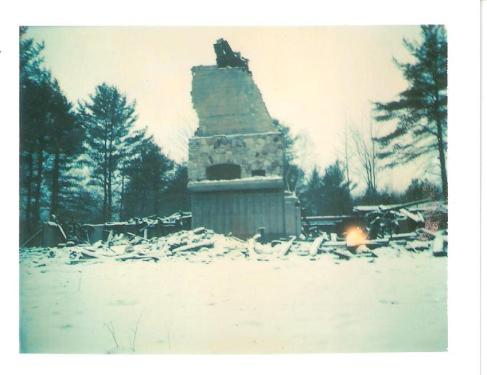
The Lodge was underinsured. Eventually, after renting a house “in the boonies” as my mother referred to it, we all moved back to the Elm’s. Greg stayed at Deerfield, and I applied for scholarship at a couple boarding schools. My entry essay was about the fire. I was accepted to the Ethel Walker School in Connecticut. My school was just an hour away from my brother’s and 2 hours from home. Despite 2 of the 3 kids being out of their hair, things weren’t improving for my parents on the home front. I’m not sure whether my mother told me about the “dryer incident” by phone or in person. She said she filled the bath tub and told George that the drain was plugged. When he knelt by the tub, rolled his sleeves up and put his hand in, she threw in the hair dryer. Nothing happened ―it wasn’t turned on. She said she just couldn’t take it anymore.
It wasn’t too long after that when my mother filed for divorce. When it was final, we put up hand-made signs in the kitchen and had a party. In the midst of it, George showed up to pick up his remaining belongings. I looked down while his eyes took the room in. he said nothing, just picked up the trash bag Mom had left by the door and walked out. After that I lost touch with George. My sister, his biological daughter, visited him through the years. He stopped drinking in 1985, but he never turned his life around. I saw him at my sister’s graduation from college and law school and at her first wedding. He was barely recognizable anymore―unsteady on his feet, a small shrunken man. We would make friendly small talk. He always asked me how I was and what I was up to in California. After a stroke debilitated him, my sister moved him into a nursing home near her.
It was during those years, when I was going through some memorabilia that I found some old postcards that were signed “Love Dad”. The signature wasn’t in the precise draftsman hand writing of my dad. It took me a moment to realize that these were the postcards that my stepfather, George, had sent me when he was on the road as a traveling salesman. My favorite was the “Jackalope” from Wyoming, he actually had had me convinced that it was real.
More than 30 years after “we” divorced George, I would visit him in the nursing home when I visited my sister and send him Father’s day and birthday cards when I remembered.
On one visit, I watched as George’s girlfriend, Muriel, came up behind him at lunch, told him she missed him, and kissed his cheek. I was touched to see him blush like a grade school boy.
Never afraid to pull a punch in jest or defense, from his wheelchair at age 82, George challenged an ambulatory nursing home resident who was flirting with Muriel to a fist fight. A year later, when Muriel was wheeled into his hospice room, he simply stated, “She doesn’t remember me anymore.”
I can almost see him now, the sleeves of his white colored shirt neatly rolled up his elbows on the table a hand placed casually over a fist in his characteristic pose. I can hear the crimkle of the foil as he unwraps another pack of Tarreyton 100’s, tapping it against his muscular palm coaxing the tip of the cigarette out. There’s the click of his silver lighter opening and closing, the quiet before his first puff, followed by the long exhale, and the telltale clink of ice in as he lifts his glass.
His insatiable thirst for Pepsi, continued through his dying days— long after he stopped adding alcohol to it. I was there when he went into hospice care. “Did you bring me Pepsi?” he would ask every time we visited. I’d stand back and watch as my sister would carefully pour some Pepsi onto a teaspoon and feed him the sweet syrup like medicine.
Georgie porgie, pudding and pie.


